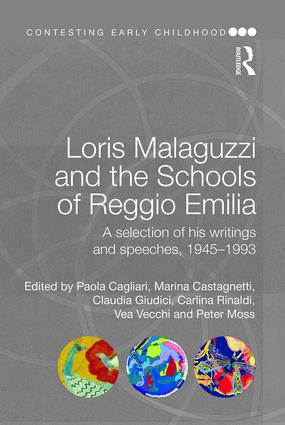 23rd February 2024 marks the 104th anniversary of Loris Malaguzzi’s birth, an event remembered especially in Reggio Emilia and also in many other places throughout the world as we honour an educator and philosopher who influenced and continues to inspire the thinking and practice of so many educators both in Italy and across the world.
23rd February 2024 marks the 104th anniversary of Loris Malaguzzi’s birth, an event remembered especially in Reggio Emilia and also in many other places throughout the world as we honour an educator and philosopher who influenced and continues to inspire the thinking and practice of so many educators both in Italy and across the world.
Nando Rinaldi, Director of Reggio Emilia’s Municipal schools, in the Gazetta di Reggio (30th January) reminded us of the significance of Malaguzzi’s image of a competent child, never more relevant today as we face the complexity of current societal and political contexts. Malaguzzi gave children a voice, said Rinaldi, who called on the Reggio community (locally and globally) to continue their commitment to be, as Malaguzzi proposed, bearers of a new culture (requiring) courage and innovation…in creating a democratic culture of childhood.
The year 2024, also marks the 30th birthday of Reggio Children, which alongside the Loris Malaguzzi Foundation and the Municipal schools create a collective which ensures the educational research project, often referred to as the Reggio Approach, continues to evolve.
REAIE is a proud member of the Reggio Children International Network and through our membership strives to defend and promote the rights of all children.
Source is the Gazetta di Reggio the regional newspaper of Reggio Emilia, Nando Rinaldi, Director of the city’s preschools, 30th January 2024.
REAIE thanks Sightlines UK International Network group for sharing the English translation of the article.
Edited by: Paola Cagliari, Marina Castagnetti, Peter Moss, Claudia Giudici, Carlina Rinaldi and Vea Vecchi
Loris Malaguzzi was one of the most important figures in 20th century early childhood education, achieving world-wide recognition for his educational ideas and his role in the creation of municipal schools for young children in the Italian city of Reggio Emilia, the most successful example ever of progressive, democratic and public education.
Despite Malaguzzi’s reputation, very little of what he wrote or said about early childhood education has been available in English. This book helps fill the gap, presenting for the first time in English, writings and speeches spanning 1945 to 1993, selected by a group of his colleagues from an archive established in Reggio Emilia. They range from short poems, letters and newspaper articles to extended pieces about Malaguzzi’s early life, the origins of the municipal schools and his ideas about children, pedagogy and schools. This material is organised into five chronological chapters, starting at the end of World War Two and ending just before his death, with introductions to each chapter providing background, including the historical context, the main events in Malaguzzi’s life and the rationale for the selection of documents.
The book provides a unique insight into the background, thinking and work of Malaguzzi, revealing, in his own words, how his thinking developed, how he moved between theory and practice, how he border-crossed many disciplines and subjects, and how he combined many roles ranging from administrator and campaigner to researcher and pedagogue. Academics, students and practitioners alike will find this landmark publication provides rich insights into his life and work.
